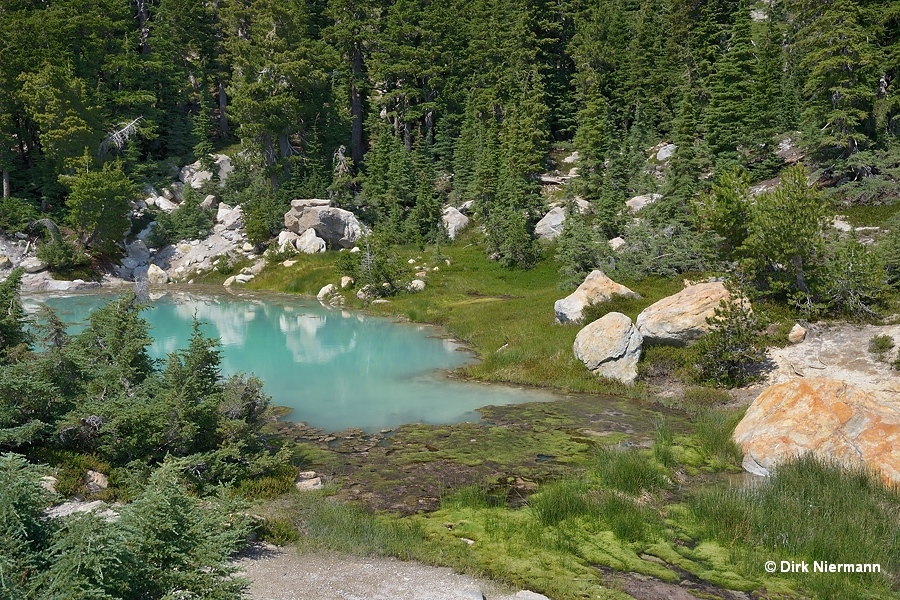Bumpass Hell in Lassen Volcanic National Park
Bumpass Hell was discovered by the cowboy Kendall Bumpass in the 1860s. He had good reasons to call it a hell because he lost his leg after breaking through thin crust above a mud pot. Located on the caldera of the long-gone stratovolcano Mount Tehama, it is the largest and most spectacular geothermal area in Lassen Volcanic National Park. The area encompasses colorful hot springs, mud pots and fumaroles, but no geysers. Starting from a parking lot between Emerald Lake and Lake Helen, it's an easy 4.8 km (3 miles) round trip, but only open in summer, when the snow is gone.
Bear in mind that Lassen Volcanic Center is ranked with the highest threat potential by the California Volcano Observatory.
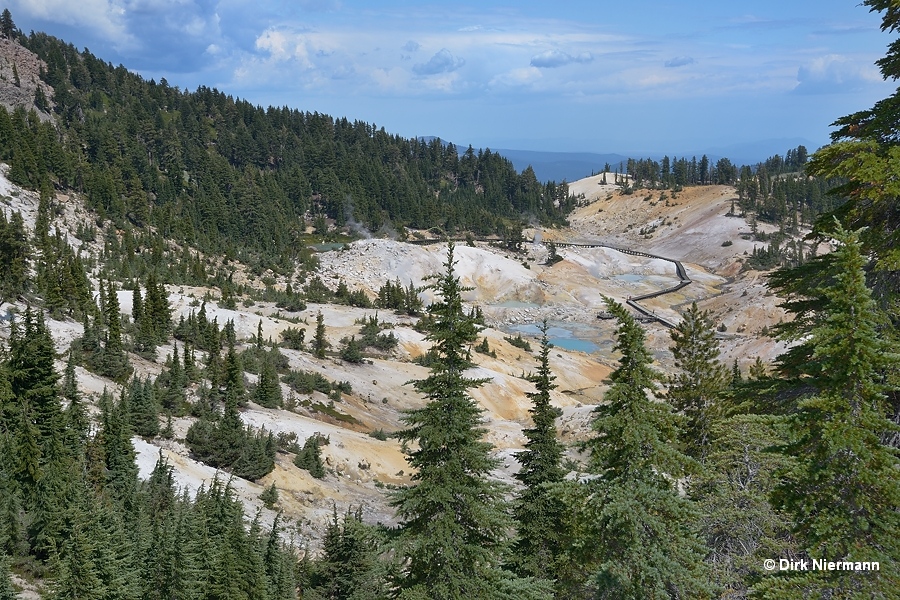
When entering Bumpass Hell you first encounter a wide slope with numerous fumaroles. Sulfur precipitations are responsible for different shades of yellow and orange on the surface.
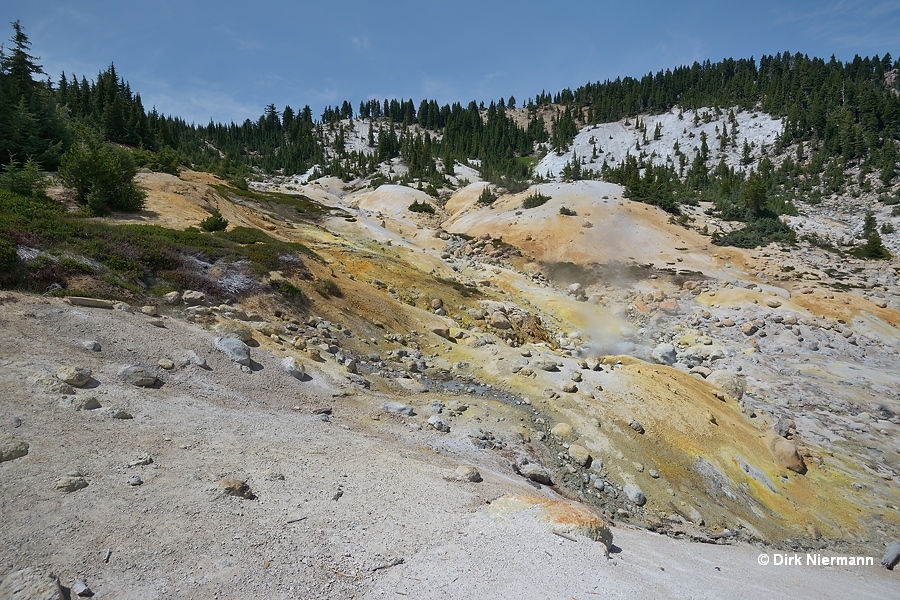
At the base of the slope West Pyrite Pool shows up. The observation platform has had to be set back a little bit due to an ongoing development of several small mud pots and springs just at its old position.
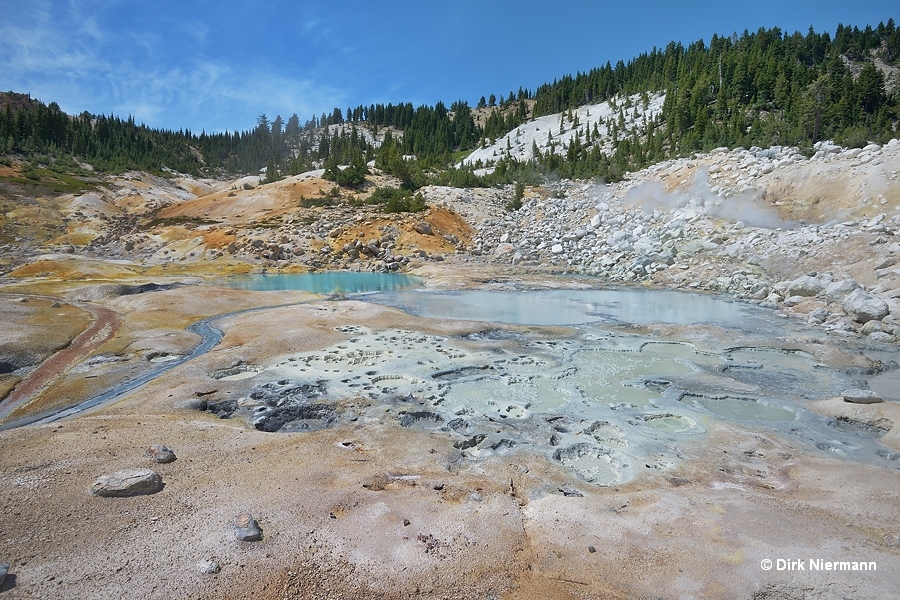
Beyond West Pyrite Pool, Big Boiler becomes partially visible. This constantly boiling, 160 °C (320 °F) hot mud pot is the most active feature on location.
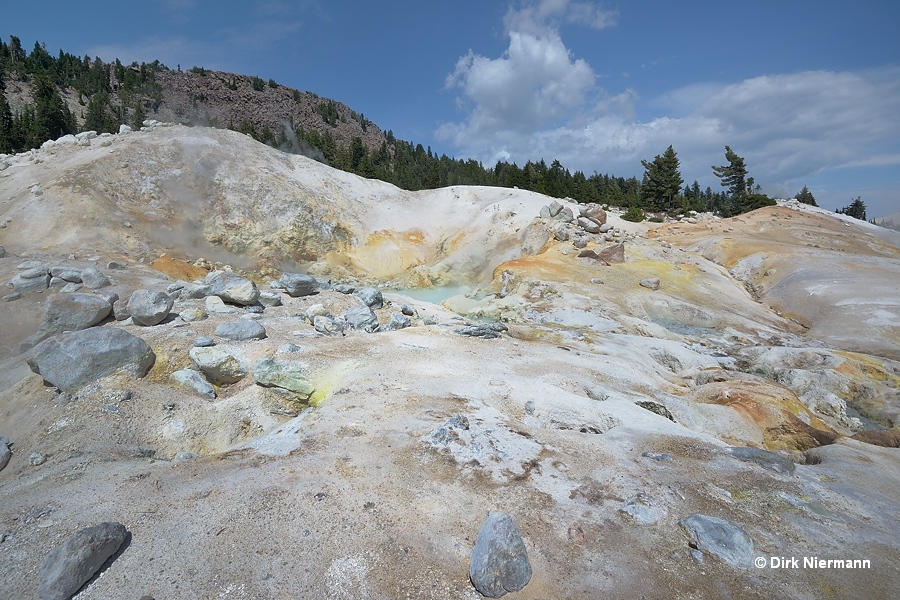
Next, the boardwalk proceeds to another bluish clouded hot spring and an adjacent bubbling mud pot.
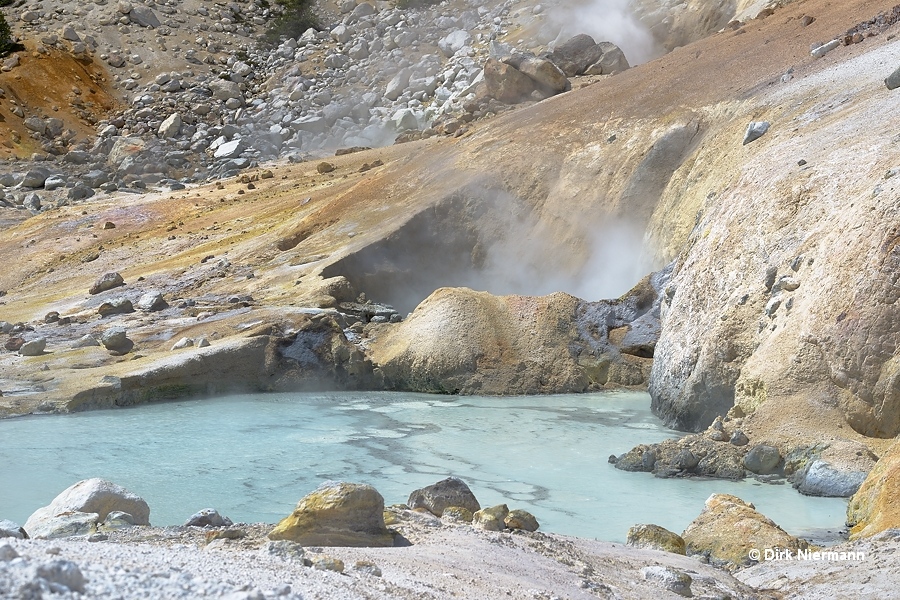
If you look closely, you may see the tops of mud bursts beyond the rim of the mud pot.
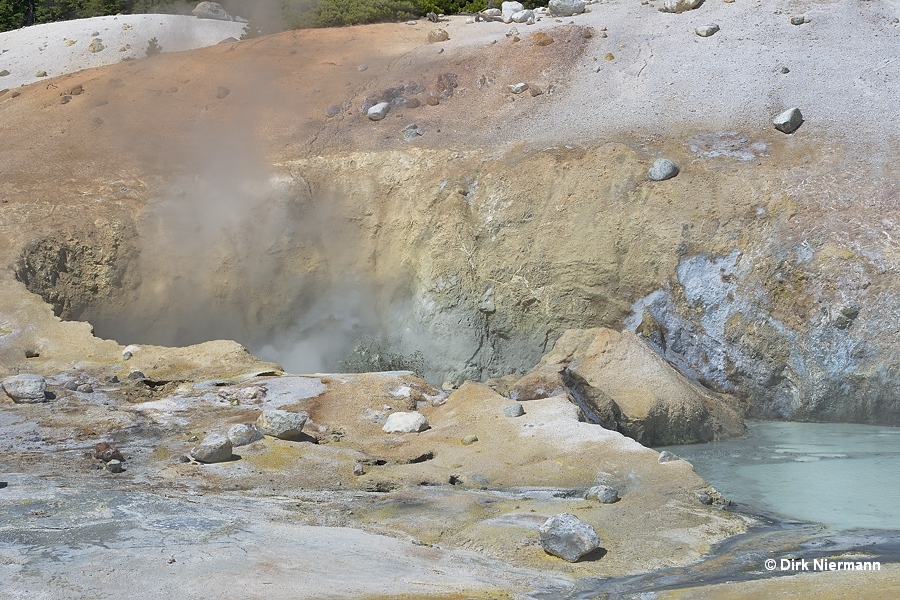
Across the boardwalk the extended East Pyrite Pool exhibits a typical feature of Lassen hot springs at its best. The surface shows fluctuating light gray and dark gray areas. The dark tone is caused by floating particles formed of pyrite (iron(II) disulfide), big enough to be seen at close range with the naked eye.
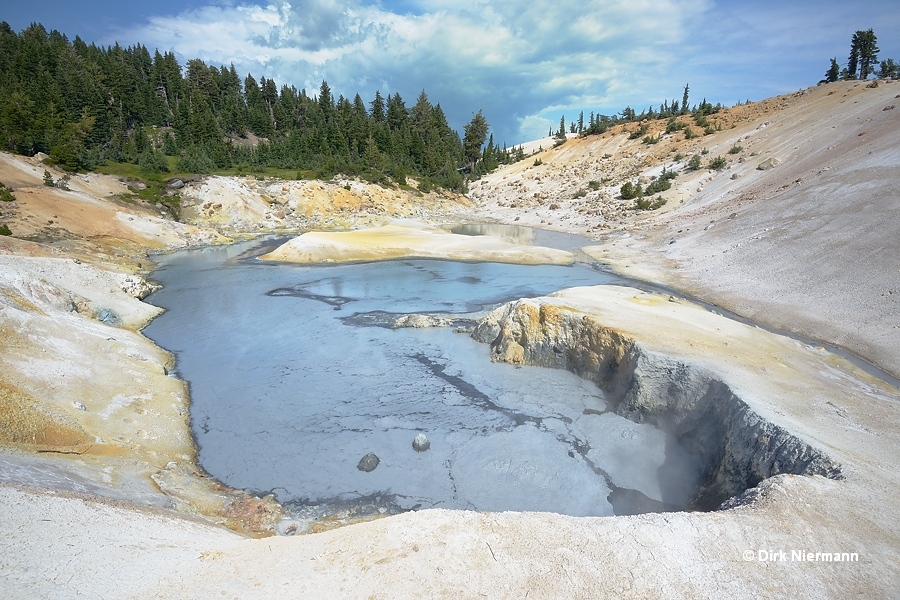
The area past East Pyrite Pool comprises several fumaroles. Some of them covered the adjacent surface with bright yellow sulfur crystals.
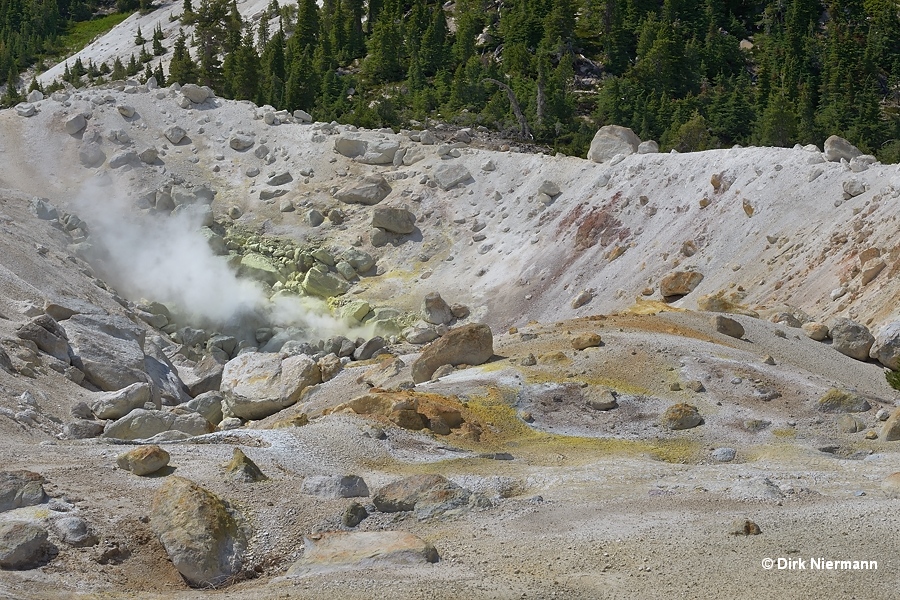
The boardwalk ends in front of a beautifully opalescent blue pool. Its kind of surprising to find such a pretty setting in immediate vicinity to the muddy, sulfur rich boiling springs and fumaroles.
